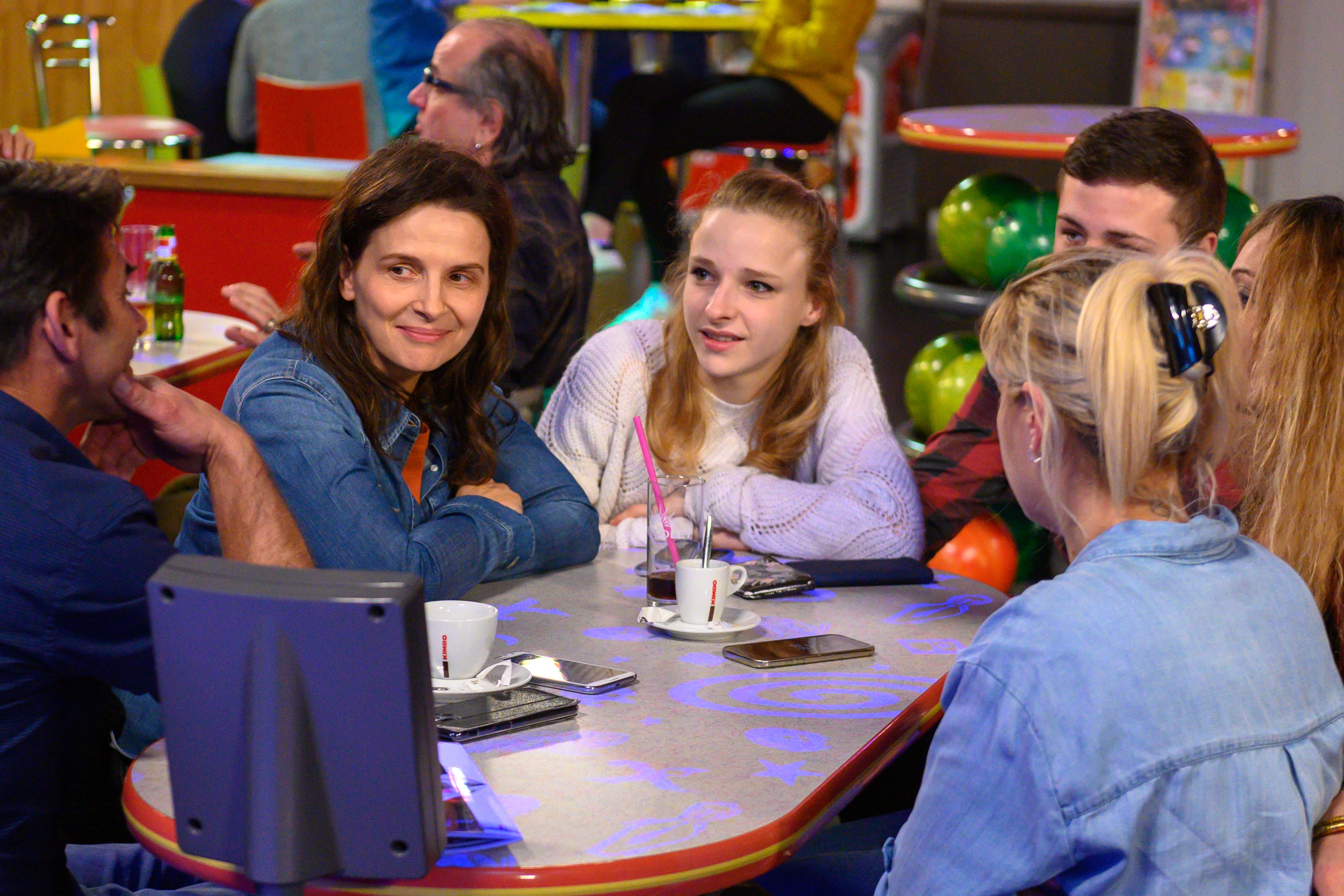On some basic level, the film Between Two Worlds might be distinguished as the film in which famed French actress Juliette Binoche is seen wielding mops, making beds (in cruelly record time), and cleaning toilets. But a critical backstory lends all-important context to her character, Marianne: She is on an undercover mission, as a self-embedded journalist learning the nitty-gritty life of the janitorial world.
She is straddling the film title’s “two worlds” in question, between the comfortable life of a writer on a surreptitious research adventure and the “fake person” identity she adopts in the line of duty and very much on-the-job.

Filmmaker, novelist, and screenwriter Emmanuel Carrère created this intriguing socioeconomic bridging tale, loosely based on Florence Aubenas’s autobiographical book The Night Cleaner. Aubenas also donned the garb and identity of the invisible, after- and between-hours life of cleaning personnel, a job description euphemistically called “maintenance agent” by the employment agency Marianne first encounters.
Originally released in 2021 and screened at the Santa Barbara International Film Festival that year, the film has finally been released stateside this summer, and its message of compassion for working-class realities and exploitation is as relevant as ever. Possibly, the film’s truthful sting is stronger, in the aftermath of the “essential worker” verities under COVID restrictions and in the current disparity of haves versus have-nots in present-day economic strata.
Marianne’s quest for authentic working conditions leads her to the challenging work life cleaning an England-bound ferry in the Normandy port of Ouistreham (Ouistreham is, in fact, the film’s French title). On this job, with cruel demands and deadlines, she learns about toil under harsh working conditions, while bonding with co-workers. Hints of Marianne’s real-life privilege slip out at times, as when she angrily erupts when her cell phone drops into a toilet. Her friend/co-worker calmly reasons “if you were in Sudan, no water, no phone, no problem.”
Although Between Two Worlds breaks new ground in terms of its theme and narrative particulars, in some way, it falls into a prevailing genre in cinema (and opera and theater) — the story of a protagonist who is not what they appear to be, and who gains trust, friendship and even romance, with the inevitable coming clean at story’s end. In this case, the ending is bittersweet, as the writer’s truth-telling saga unveils the harsh conditions of working/cleaning-class life, while losing the trust and respect of her new friend Chrystèle (Hélène Lambert).
A sub-theme in the film pertains to the occupational treachery of writers drawing on real relationships from which to create characters.
If Between Two Worlds sometimes slips into eddies of sentimentality along the way, the film gains points as a rare one dealing directly with an aspect of social life in the everyday, working-class world, a relatively invisible dimension in terms of social visibility or cinematic interest. It ultimately offers a refreshing perspective, a social reality check of sorts, in the public forum of film. See the trailer here.

 on Google
on Google 



You must be logged in to post a comment.